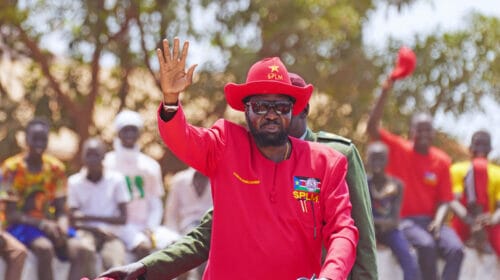New Momentum to Resolve Challenges in Land Management in Kenya
The quest for an end to the perennial challenges in land management in Kenya has today benefited from a new thrust. This followed a resolution by over thirty land sector actors to launch the National Engagement Strategy, which provides for a multi-stakeholder platform, to coordinate activities towards resolving the perennial land management challenges in Kenya.
The decision followed a two-day workshop on 18th and 19th January, aimed at formulating the National Engagement Strategy. Participants in the workshop included representatives of national and international Non-governmental Organizations, Intergovernmental Organizations, Ministry of Land, Housing and Urban Development, Ministry of Environment, Water and Natural Resources, The National Irrigation Board, and the European Commission.
“The platform will provide a viable framework for multi-stakeholder engagement, as well as amplify the voice of members of the International Land Coalition (ILC), and other stakeholders addressing pertinent land issues in Kenya”, said Kennedy Orwa, the Executive Director of Environment Liaison Centre International (ELCI), a member of ILC and the host of the platform. ILC is a global coalition of civil society and intergovernmental organizations working to achieve a people centred land governance.
According to ILC, there is widespread recognition, that land rights are a fundamental element to addressing major challenges facing humanity: achieving gender equality, overcoming rural poverty, building fair and sustainable food systems that recognize small-scale producers, peace-building, mitigating and adapting to climate change, managing ecosystems, and reversing land degradation.
The participants agreed on five priority areas that will guide the work of the platform, which is expected to heighten momentum towards practical solutions to the challenges of land and natural resources management in Kenya: Implementation of Land Laws and Policy; Establishment of a Stakeholder Forum on Land; Coordination of the Competing Sectors Over Land Use; Broadening Understanding of Land Tenure; and Addressing Land Related Conflicts.
Although the country is lauded for progressive land laws, myriad challenges remain. The Ndung’u Report on Land Grabbing in Kenya, for example, contains recommendations that successive governments have been unable to implement, a clear indicator of the sensitivity attached to land issues in the country. Structural adjustments such as the creation of the Environment and Land Courts, though forward looking, are criticised for increasing the cost of land dispute resolution.
Appreciating the gravity of the task that lay ahead, Mr. Orwa said, “we are aware that’s a daunting task, but nothing is more urgent than an idea whose time has come. Ours is a resolve to come out, one and all, to work together to bring the change we that want. That requires us to drop our individual pride and spirit of competition, if any; and instead nurture the practice of consultation and building on the strengths of each other”.




